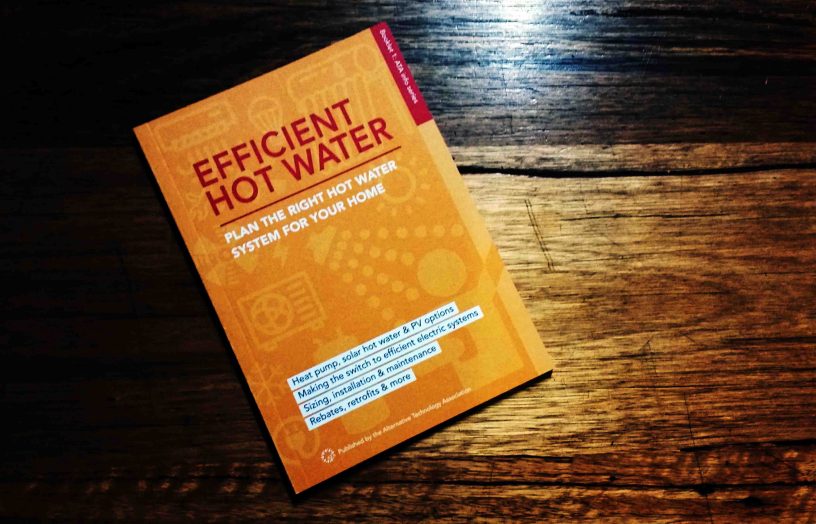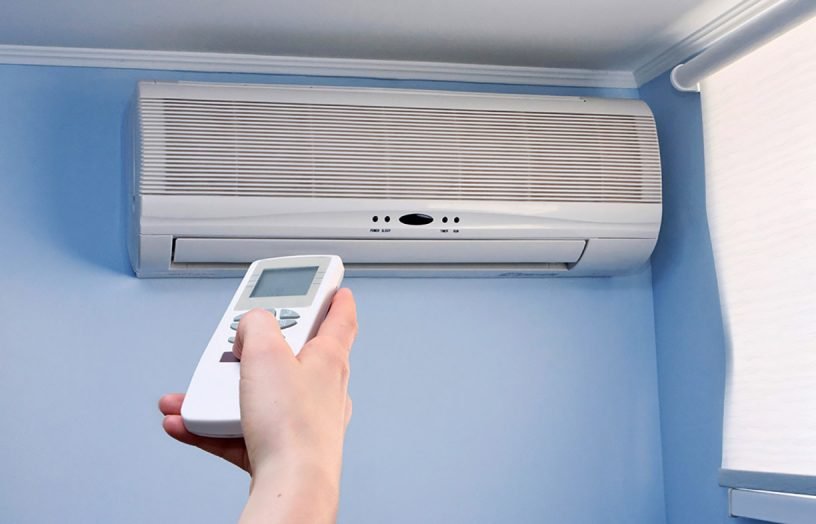Plan the right system for your home
Hot water heating can account for over 20 per cent of household energy use, so it’s important to get the right system to help you save on bills and greenhouse gas emissions. A lot’s changed in the hot water market in the last 10 years, with very efficient electric systems available that can run off the surplus from a solar PV system, or at night when off-peak electricity tariffs are at play.
Don’t leave it until the last minute to plan your new hot water system. Explore the topics below and download a copy of Renew’s Efficient Hot Water booklet to get started.
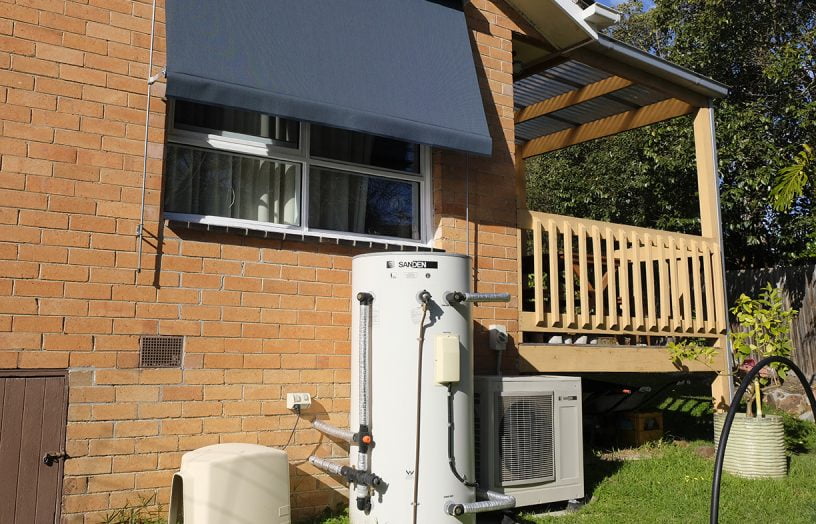

What we consider to be an efficient hot water system has changed a lot in the last ten years. Modern electric appliances can perform better than gas appliances and are often cheaper to operate. And more Australian households have rooftop solar PV installations, with at least some excess electricity available to help run a hot water system.
Replacing a conventional water heater with a heat pump, solar thermal (commonly referred to as solar hot water) or solar electric system will help save the most energy.
We don’t look as closely at efficient gas hot water options such as gas instantaneous, although many solar thermal hot water systems do have gas boost options. Gas used to be seen as the cleaner energy choice, at least when compared with burning coal, but there are better non-gas appliances available to households now. And changes in the gas market mean gas prices are on the rise. Replacing a hot water system with a modern solar thermal or electric one is often the first step in disconnecting from the gas grid, and eliminating the associated costs and greenhouse gas emissions.
Find out more about going off gas here.
A heat pump hot water system runs on electricity, but only uses a fraction as much electricity as a traditional electric water heater. As well as a hot water tank they also include a heat pump unit, like the outdoor unit for a split-system air conditioner. This unit extracts heat from the outdoor air to heat up the water, and good heat pumps can do this effectively even in freezing weather. It works the same way as your fridge, which extracts heat from its freezer section and dumps warm air out the back.
Depending on the type of heat pump, energy reductions of up to 80 per cent can be achieved compared to resistive-electric storage water heaters. The remainder of the energy is automatically supplied via your normal household electricity wiring.
Solar thermal hot water system
A solar thermal hot water system has panels or tubes that sit on your roof and are heated directly by the sun. They heat up water in the hot water tank, which can either sit on the roof or down at ground level.
The percentage of your household hot water supplied by these systems depends on where you live in Australia, ranging from 50–55 per cent in Hobart, to 90–95 per cent in Darwin. The shortfall occurs during cool or cloudy weather and is most commonly covered by electric or gas boosting.
Find out how to choose the right system for your home in Renew’s Efficient Hot Water booklet and the Efficient Hot Water Buyers Guide in Renew magazine.
A hot water system is a big investment and one that won’t be replaced too frequently, so it’s worth weighing up the options. The main considerations are environmental benefits, how it works with the existing power supply, upfront cost, reliability and the cost to run.
The Making a Choice chapter in the Efficient Hot Water booklet goes through the factors you may not have thought of regarding hot water system choice. For instance, solar thermal systems require sunny roof space and either a strong roof if the tank is on the roof, or require regular pump maintenance if the tank is on the ground. Heat pumps require none of these. On the other hand if there’s no space for a tank at ground level, solar thermal may be the practical option.
Explore the Efficient Hot Water booklet for more information.
To work out your system size consider the number of people in your household, your future household and the impact of size on the system’s efficiency.
Ideally the system should be sized for the dwelling, not necessarily its occupants. People sell houses and move on but the hot water system stays. It is generally accepted that each person will use around 50 litres of hot water per day. In a system that includes a tank it is good to have 1.5 days capacity. A three-bedroom house can comfortably accommodate four people and so it should ideally have a 300-litre tank.
On the other hand if funds are tight then you won’t want to overcapitalise on the hot water system. If the household only has one short shower per day, a cheap instantaneous gas system might be a practical answer.
Many households only get a low feed-in tariff for surplus solar energy exported to the grid, depending on location and electricity plan. In this case it makes sense to use as much energy as possible as it is being generated, rather than exporting it to the grid. One way to do this is to install a heat pump water heater, or even a resistive element water heater if you have a lot of grid-connected PV panels, and use the excess solar power. However, some electric water heaters use a lot of power, which may exceed the excess solar power during cloudy weather and consume expensive grid electricity.
Electric diversion systems intelligently use excess energy from an existing grid-connected PV array to heat water in an electric storage water heater. The controller senses when energy starts flowing out to the grid, and turns on the water heater at the appropriate power level to consume that power.
We look at PV diversion in the Efficient Hot Water booklet and Renew magazine’s Efficient Hot Water Buyers Guide.
There are plenty of ways you can improve the efficiency of an existing hot water system. One of the best ways is to install low-flow shower heads to reduce how much water you need to heat.
If the tank’s temperature control is too high you’re wasting energy. If this is the case adjust the temperature, noting that the static set point should not be less than 60 degrees Celsius for biosafety reasons.
Also check that your hot water pipes are properly insulated. If they’re not, then you could be wasting energy through heat losses.
Another place to insulate is around the system’s pressure relief valve. A Valve Cosy is especially designed to insulate this valve and prevent heat losses. You can buy one at Renew’s webshop.
Various government schemes exist to provide incentive for the adoption of high-efficiency hot water systems.
Under the federal government’s Small Scale Renewable Energy Scheme (SRES), eligible systems qualify for small-scale technology certificates (STCs), which are exchanged for a rebate at the time of purchase.
STCs can save you a great deal on the cost of a new heat pump or solar thermal hot water system. The rebates and STCs are usually arranged by the supplier so you don’t need to do any paperwork to receive the discount. The price will probably still be higher than a similarly sized conventional water heater but savings on running costs can pay for this difference in 5 to 10 years in most cases.
Currently only SA and Victoria offer state government rebates for solar thermal and heat pump water heaters; ask your supplier for details.
LATEST ARTICLES
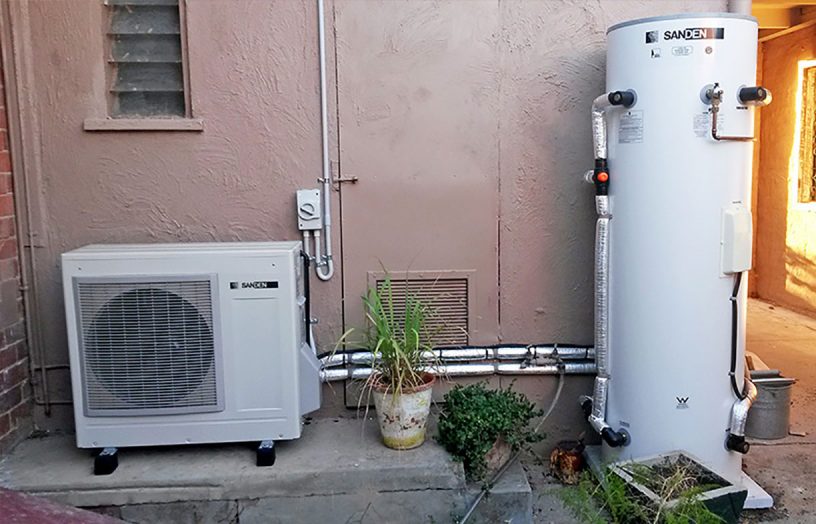 Buyers guides
Buyers guides
Hot water savings: Efficient hot water buyers guide
If your old hot water system has seen better days, maybe it’s time for an efficient replacement. We show you how solar and heat pump hot water systems work, what’s available and how to choose one to best suit your needs.
Read more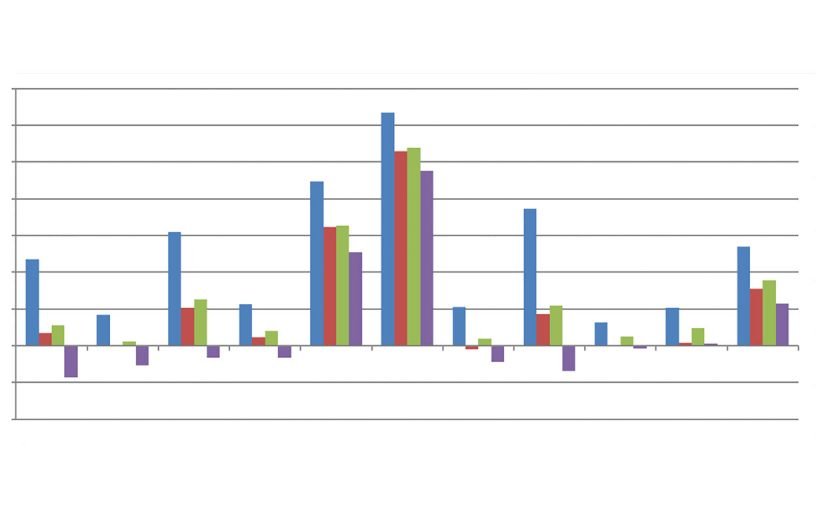 Efficient homes
Efficient homes
Gas versus electricity: Your hip pocket guide
The results of ATA’s latest study on the economics of switching to electricity from gas for heating, hot water and cooking, for both solar and non-solar homes.
Read more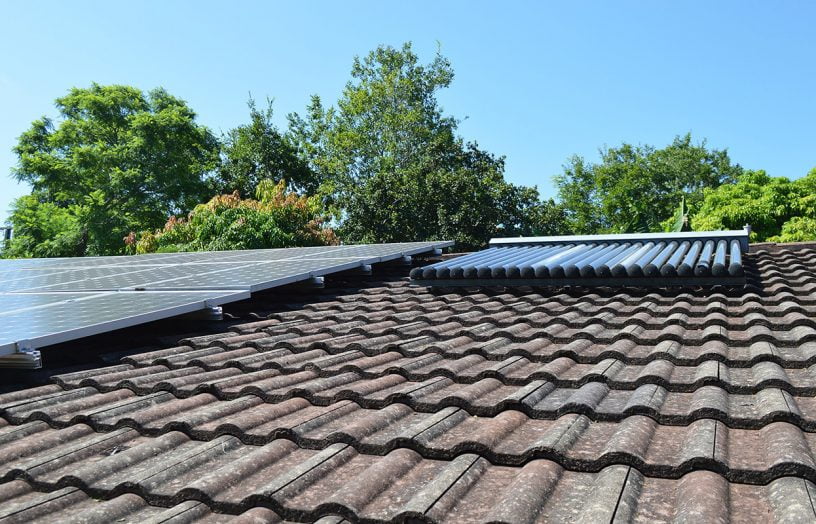 Hot water
Hot water
Getting into hot water: water heating ways
Five reader stories and five different systems that illustrate there’s more than one way to get into hot water!
Read more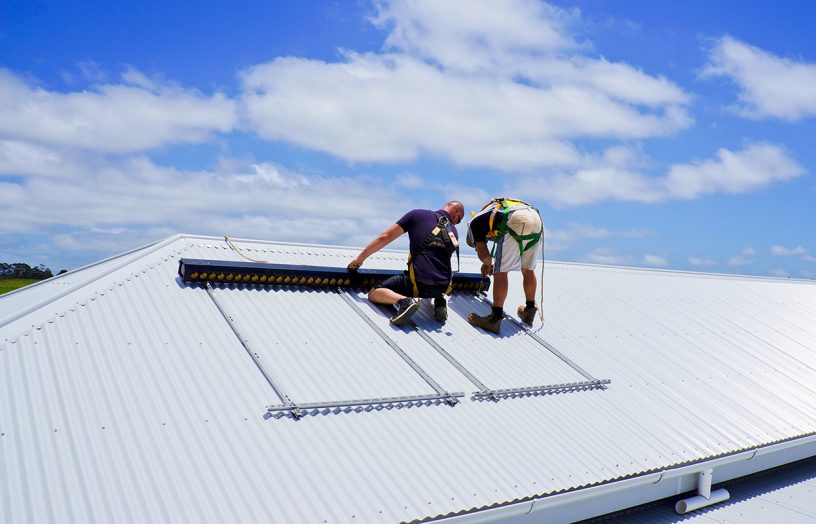 Hot water
Hot water
Questions for hot water system suppliers
It’s best to sound out an installer to check their reliability before buying a hot water system. Have they successfully installed this particular hot water system before? What happens if they go out of business? Here are some key questions to get you started.
Read more

